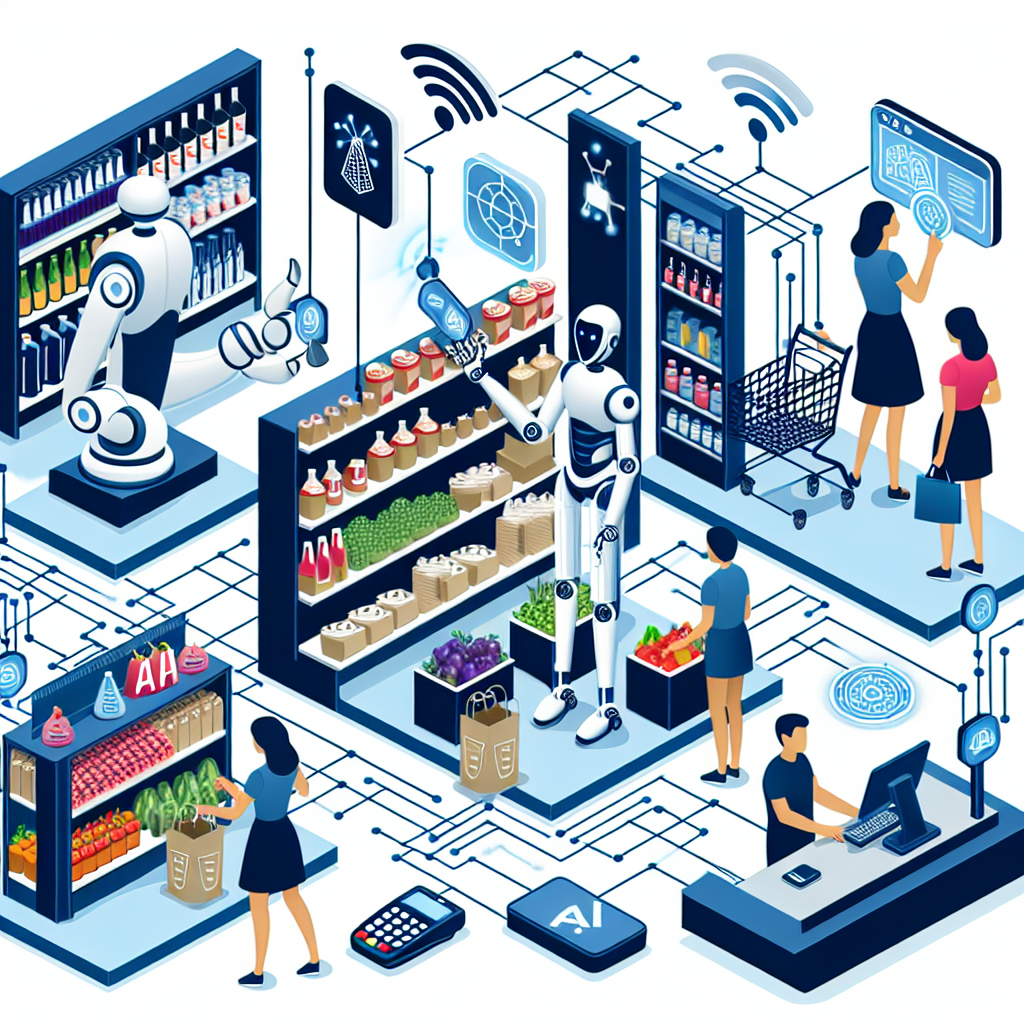In recent years, the retail industry has seen a significant transformation due to the increasing use of artificial intelligence (AI) automation. From improving customer experiences to streamlining operations, AI automation has revolutionized the way retailers do business. In this article, we will explore how AI automation is transforming the retail industry and the benefits it brings to both retailers and consumers.
One of the key ways AI automation is changing the retail industry is through personalized customer experiences. AI algorithms can analyze customer data and behavior to provide personalized recommendations and offers. For example, retailers can use AI-powered chatbots to assist customers in finding products, answer questions, and provide support. This personalized approach not only enhances the customer experience but also increases customer satisfaction and loyalty.
Another way AI automation is transforming the retail industry is through inventory management. Retailers can use AI algorithms to predict demand, optimize inventory levels, and automate reordering processes. This helps retailers reduce stockouts, minimize overstocking, and improve overall inventory efficiency. By using AI automation for inventory management, retailers can better meet customer demand, reduce costs, and improve profitability.
AI automation is also revolutionizing the way retailers conduct marketing and advertising campaigns. Retailers can use AI algorithms to analyze customer data, segment audiences, and personalize marketing messages. This enables retailers to target the right customers with the right offers at the right time, leading to higher conversion rates and increased sales. Additionally, AI automation can help retailers optimize advertising spend, identify trends, and measure campaign performance, allowing for more effective marketing strategies.
In addition to personalized customer experiences, inventory management, and marketing campaigns, AI automation is also transforming the way retailers operate their stores. Retailers can use AI-powered systems to automate routine tasks such as inventory counting, shelf stocking, and checkout processes. This frees up employees to focus on more strategic tasks, such as providing personalized customer service, improving store layouts, and optimizing product assortments. By automating these processes, retailers can increase efficiency, reduce labor costs, and improve overall store operations.
Furthermore, AI automation is enabling retailers to better understand and predict consumer behavior. By analyzing vast amounts of data, AI algorithms can identify patterns, trends, and insights that can help retailers make more informed decisions. For example, retailers can use AI-powered systems to analyze sales data, customer feedback, and social media trends to identify new product opportunities, understand customer preferences, and predict future demand. This allows retailers to stay ahead of market trends, adapt to changing consumer preferences, and drive business growth.
Overall, AI automation is revolutionizing the retail industry by enhancing customer experiences, improving operations, and driving business growth. By leveraging AI technology, retailers can gain a competitive edge in today’s fast-paced and evolving market. As AI automation continues to advance, the retail industry will see even more transformative changes in the years to come.
FAQs:
Q: How can retailers implement AI automation in their operations?
A: Retailers can implement AI automation by investing in AI-powered software and systems, partnering with AI technology providers, and training employees on how to use AI technology effectively. Retailers should also analyze their business processes, identify areas where AI automation can add value, and develop a strategic plan for implementing AI solutions.
Q: What are the benefits of AI automation for retailers?
A: The benefits of AI automation for retailers include improved customer experiences, enhanced operational efficiency, increased sales and profitability, better decision-making, and a competitive edge in the market. AI automation can help retailers streamline processes, reduce costs, and drive business growth.
Q: How can AI automation help retailers improve inventory management?
A: AI automation can help retailers improve inventory management by predicting demand, optimizing inventory levels, automating reordering processes, and reducing stockouts and overstocking. By using AI algorithms to analyze data and trends, retailers can make more informed decisions about inventory management, leading to better customer satisfaction and profitability.
Q: What are some examples of AI automation in the retail industry?
A: Some examples of AI automation in the retail industry include personalized product recommendations, chatbots for customer service, automated inventory management systems, AI-powered marketing campaigns, and predictive analytics for consumer behavior. These AI technologies are transforming the way retailers do business and enhancing the overall customer experience.

